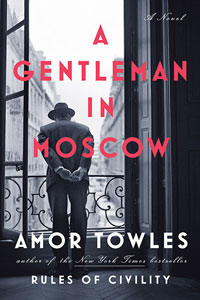I’m very pleased to welcome back again guest reviewer Mary Schulz. Mary is a treasured friend and neighbour, a silent book club stalwart and life force and a discerning reader who articulates beautifully how a book captures her interest (or doesn’t, as the case may be). She most recently reviewed Finding Meaning: the Sixth Stage of Grief, by David Kessler. She returns with thoughtful and beautiful observations about a beloved novel this time, one that happens to have captivated several readers in our silent book club. Before we enjoy her review, allow me to reprise Mary’s bio:
Mary Schulz, a Social Worker by background, has enjoyed a rich and rewarding career in virtually all areas of health care, focusing primarily on the care of older adults, including those living with dementia. Now that that period of her life has come to a satisfying close, she is figuring out what the next phase of life may bring. Happily, books play a huge part in this, as entertainment, escape, instruction and catalyst for reflection.
Perhaps I am old fashioned, but I think our world needs more characters who live their lives with grace and a philosophy of treating every person they meet – regardless of occupation, cultural background, net worth or social standing – with dignity and genuine curiousity. Of all the attributes one might ascribe to Count Alexander Ilyich Rostov in Amor Towles’ novel, A Gentleman in Moscow (2016), these are two of the most endearing.
For those of you who have not yet read this captivating novel, you are in for a treat. In 1922, Rostov is condemned to exile in an iconic Moscow hotel, The Metropol, as a consequence of having written a “subversive poem”.
Now I realize that being exiled to a luxurious “grande dame” of a hotel, complete with waiters, a renowned restaurant, top flight entertainment and well stocked bar may not sound like much of a hardship. But we soon realize that Count Rostov is relegated to a closet sized chamber (literally) and stepping outside the hotel’s doors even for the briefest breath of fresh air puts him at risk of being shot. We come to understand that freedom, even when realized in the most humble surroundings, is preferable to imprisonment in a palace.
The novel advances in part through story lines that cleverly bridge Rostov’s earlier life in the genteel company of his beloved sister and grandmother at their country estate with his current life in the Metropol. The reader is advised to pay close attention to Rostov’s seemingly innocuous musings and reminiscences as they tend to have relevance later on in the novel. Nothing is introduced in this story without a reason.
This book is, at its heart, a testament to the strength of the human spirit and of community. Despite bouts of understandable despair, Rostov’s warm and often unlikely relationships with individual hotel staff and key guests sustain him. And is this not a fundamental truth for most of us? Who among us has not come to realize, with fresh eyes, how interconnected we all are? Rostov’s genuine interest in others enables him to navigate and find meaning in a world replete with apparatchiks and artists, seamstresses and starlets – none of whom is any more instrumental to the plot than another. When a young girl comes into his life, Rostov’s bemused interactions with her highlight how a child is a creature as foreign to him as the prospect of enjoying dinner without a precisely paired glass of wine.
And just where, as a member of the cossetted Russian elite, did Rostov acquire his varied survival skills? It is here where so much of the magic and charm of this novel rests. We are reminded that the world functions most effectively when good manners, grace and kindness preside. For example, it is proven to us without any doubt that drawing up a dining table seating plan of potential allies, lovers and foes requires at least as deft a hand, and has the potential for at least as deadly consequences as drafting a military plan of attack.
Towles has studied hard to understand not just the history but the very soul of Russia and her people. Key figures in Russian art, music and history such as Pushkin, Tolstoy and Chekhov are brought into conversations as though they were characters being invited to pull up a chair. One notes with interest how similar Count Alexander Ilyich Rostov’s name is to that of Leo Tolstoy’s character in War and Peace, Count Nikolai Ilyich Rostov. A coincidence? I think not. There are no coincidences in this finely crafted tale.
Now if all of this sounds quite heavy and ponderous, take heart. One of Rostov’s most charming qualities is his ability not only to laugh at himself, his country and fellow countrymen (within reason, of course) but also to note the absurdity of so many events that transpire around him. He is a witty character indeed!
This novel has it all – a tableau of diverse characters whom we come to care about deeply, historical people and events as signposts for daily life, life and death struggles, humour and pathos.
And it is Count Rostov who challenges us to reflect on how we would fare if put in a similar situation. Would we be as determined, disciplined, accepting, gracious and yet driven to orchestrate our best possible life? This is a quietly hopeful novel with much to teach us about the power and grace of the human spirit.

